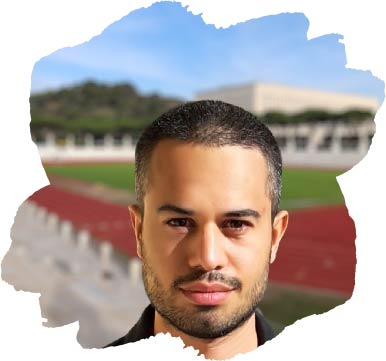
The importance of respiratory monitoring in sport
Respiratory monitoring has the potential to solve long-standing problems experienced by coaches and sports scientists. Respiratory frequency is a better marker of physical effort compared to oxygen uptake, blood lactate and heart rate. It is closely linked with perceived exertion and exercise tolerance under a variety of exercise protocols, modalities and conditions. Unlike heart rate, respiratory frequency shows a very fast response during transitions from rest to work and vice versa, with important implications for monitoring physical effort in team sports (e.g. soccer) and during high-intensity interval training. This lecture will provide insight into the practical applications of respiratory monitoring and explain why respiratory frequency appears to be such a powerful variable to monitor in sport.
Andrea Nicolò - Biosketch
Andrea Nicolò received his BSc (2009), MSc (2011) and Ph.D. in Sports, Exercise and Ergonomics (2015) from the University of Rome “Foro Italico”. He is currently a post-doc researcher at the University of Rome “Foro Italico”. His research focuses on endurance physiology and performance, with special attention to the mechanisms and practical applications underlying the control of breathing during exercise. He has worked for different research projects funded by major national and international sports companies, with the aim of developing new exercise tests and training metrics, and of validating training devices and algorithms. Since December 2018, he is the Chair of the “Sports Sensors” technical committee of the Italy Chapter of the IEEE Sensors Council.